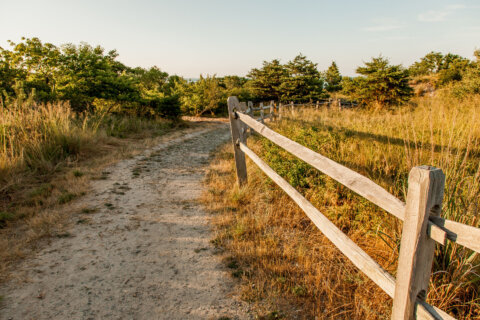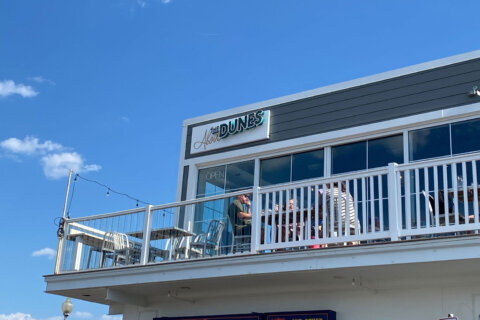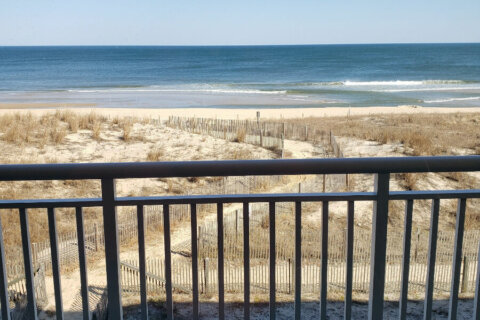
Businesses near the Delmarva beaches and in the Outer Banks expect this summer to be one of their busiest seasons ever.
“This year is probably gonna be the best year the island has ever had,” said Byron Miller, the general manager of the Ocracoke Harbor Inn, on Ocracoke Island in the Outer Banks of North Carolina.
He said the reservations kicked up at his inn as soon as people were allowed to visit last year and the phones didn’t stop ringing after that.
For Miller, business is up 25% so far this year and he’s booking rooms into the later part of the year, outside of the typical beach season of Memorial Day to just after Labor Day.
Along the beaches in Delaware, bookings at hotels have nearly doubled compared to the same period last year.
“We have pre-bookings like I’ve never seen,” said Carol Everhart, president and CEO of the Rehoboth Beach-Dewey Beach Chamber of Commerce.
According to the chamber, the weekends from Jan. 1 through May 16 of this year saw almost 39,000 people book hotel rooms — almost double the number for the same period last year.
“It’s just a lot of activity; businesses are open; it’s just a return to normal for the most part,” Everhart said.
She said the increase is due to popular annual events announcing their return this year as well as a lot of pent-up demand from people who are now comfortable enough to take a vacation.
It’s not just the hotels and inns that are seeing a big return of tourists.
Dean Shuttleworth, of the three Thrasher’s Fries locations in Rehoboth Beach, said they’re busy, too.
“So far with spring we’ve done extremely well,” Shuttleworth said.
With vaccines going into arms, he said, the number of people setting up towels and chairs on the beach continues to grow.
“I think the confidence of our customers has come back,” he said.
Also in Rehoboth Beach, Chris Darr, who along with his family runs the Funland Rehoboth amusement park, watched as their revenue dipped 80% last year due to the pandemic.
Many times last year, Darr said, the normally busy tourist town looked more like a ghost town.
“The beach seemed like a scary place to so many people,” Darr said.
This year, as crowds return, he’s hopeful things will be a lot different.
“There’s just a more positive feeling,” Darr said.
At the Mug and Mallet, in Ocean City, Maryland, owner Shannon Tippet said the number of visitors so far this year gives her hope that this year’s crowd will help her business recover.
“I am super-excited, because I feel like people are feeling more confident about coming out … where at this time last year the boardwalks were pretty empty,” Tippet said.
COVID-19 impacts remain
While busier beaches, restaurants and stores are lifting the spirits of business owners, the threat of the virus remains. This season is still far from business as usual.
At Funland Rehoboth, masks will still be worn and visitors will have to buy timed passes. Before the pandemic, Darr said, anyone could walk up to a ride and pay to use it.
“It’s a totally different model from what we’ve operated under for the previous 58 summers before COVID hit,” Darr said.
It remains unclear how much continuing the timed pass system will impact the bottom line.
“We’re providing a great product right now but financially for us, we’d be much better off using that model we used for 58 years,” Darr said.
It has mostly been business as usual at Thrasher’s Fries, though employees are still wearing masks and Plexiglas remains to protect employees, Shuttleworth said.
‘I think we’re gonna struggle’
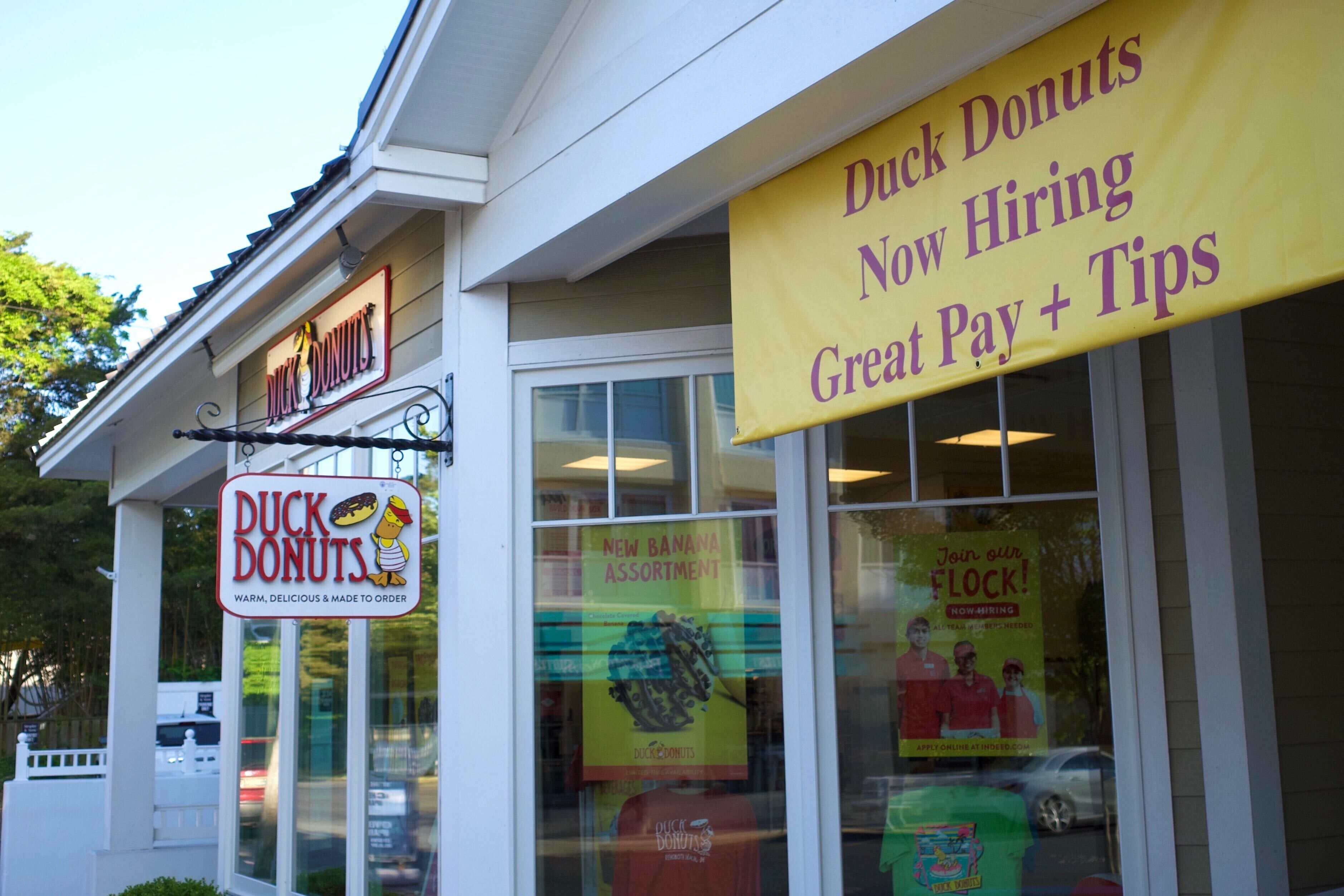
While businesses are excited to see the crowds return, they face one very big hurdle: the inability to fill the seasonal jobs needed to cater to the millions of people who visit the beaches.
“I think we’re gonna struggle,” said Shuttleworth.
At Thrasher’s Fries, “Help Wanted” signs are up, but not many people are responding.
Shuttleworth said during a typical year, in addition to applications from people who live in the area, he also receives job applications from 20 to 25 seasonal workers from overseas who have J-1 visas. This year, he has only received one application from someone with the visa.
“There’s only so many Americans that are able to work, and we are splitting that pie up by many pieces,” said Shuttleworth.
In the absence of those extra workers, Shuttleworth said he may need to keep one of his three locations closed this season.
At Funland Rehoboth, they are trying to keep the rides running with fewer people on staff.
“I think we’re all in that boat, struggling to find employees,” said Darr of Funland.
Tippet’s restaurant had 35 full-time employees in 2019; this year she only has eight. She said the lack of people looking for work has led to decreased hours of service and a lot more work for those on staff.
“We’re hoping that we’ll get more staff, but it’s not looking so good. But what do you do, though? We just gotta keep rolling with it,” Tippet said.
What’s behind it?
Dr. Katharine Abraham, a professor of economics at the University of Maryland, said some of the hesitance to apply for the jobs may come from fear of getting the virus, because vaccines are still being administered.
“If you think about the kinds of jobs that businesses on the shore are recruiting to fill, they’re … jobs that involve a lot of contact with people,” Abraham said.
There are differing theories for why business owners can’t find workers.
For one thing, “We definitely have a housing shortage here in Ocean City,” according to Tippet.
She said she’s concerned that many rental homes in the area have been turned into short-term rentals geared toward tourists, so potential workers have nowhere affordable to live.
- Work from the beach: How some made the most of telework
- Condo and home rental market booming at Delmarva beaches
- Lifeguarding amid a pandemic: Ocean City livesavers get ready for 2021 beach season
Everhart, with the Rehoboth Beach-Dewey Beach Chamber of Commerce, said when she surveyed business owners, she discovered there’s concern that those collecting unemployment and other stimulus money from state and federal government are not searching for work right now.
“They’re [potential employees] receiving too much funding to stay home — that is their take on this,” Everhart said.
Abraham said while there may be cases of people choosing to stay unemployed, she doesn’t believe that is the main factor for why people are not applying. Many seasonal workers in particular probably wouldn’t qualify for unemployment.
Abraham believes the significant factor at play is the reduced number of seasonal workers from other countries due to the pandemic. She said those individuals fill many of these open positions in a typical season.
“It’s been harder for people to get those visas processed and actually get here,” Abraham said.
Trying to bring in workers
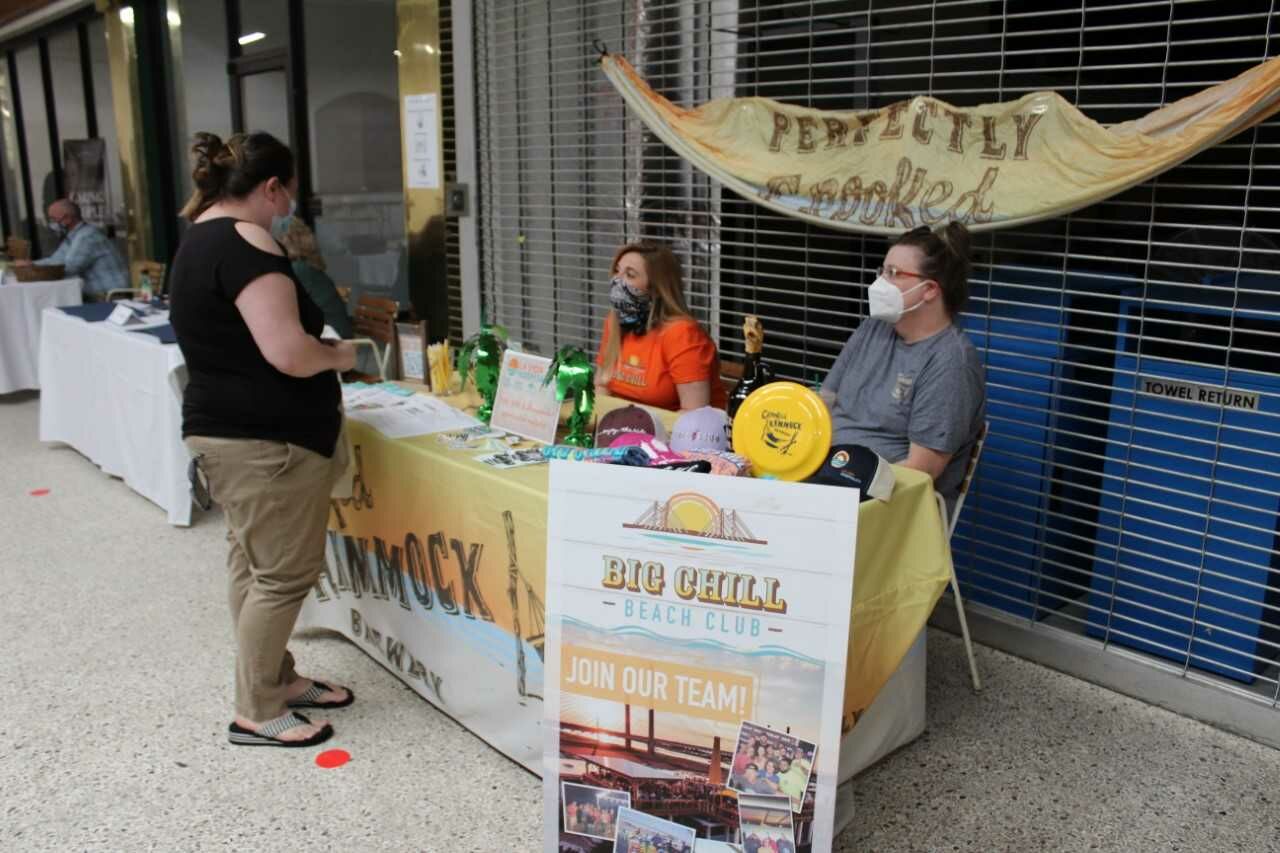
Everhart said businesses along the beach in Delaware are taking steps to try and bring in more employees. She said one hotel boosted pay to $18 an hour for cleaners, but that wasn’t enough to lure in workers.
Shuttleworth said he’s increasing starting pay for new hires as well. His hope is more help can come from elected officials, too, in the form of a government-funded “bonus to get jobs.”
Abraham said while better wages can help bring in workers, when looking at the job market more broadly she doesn’t believe governments will turn to using tax dollars to reward people who take jobs.
“I don’t think we need to be bribing people to go back to work in general, although it might make sense in this particular case; I don’t think it’s very likely that that’s what we’re gonna do,” Abraham said.
Tippet’s strategy to bring in more staff is to not only sell applicants on the family atmosphere at Mug and Mallet, but also tell them about the annual all-expenses-paid vacation she takes her employees on each year. The restaurant owner said she has also helped some new hires find housing.
“Whatever they need, I make it happen,” Tippet said.
Abraham said she feels the labor market will begin to look a lot better by the fall, after the country can work through what she calls re-engagement frictions.
“That unfortunately doesn’t help the seasonal businesses at the beach,” Abraham said.
‘Be patient’
As they work with reduced staff, many of those who run the restaurants and attractions are urging visitors to understand service might not be as fast as it was in years past.
“If our customers can just be patient, we are certainly doing the best we can,” said Shuttleworth.
That’s the same message from those who keep the rides moving at Funland.
“Whether you’re going to a restaurant on the boardwalk or whether you’re coming to Funland, you might have to wait a little bit longer if we can’t fill some of those spots,” Darr said.


